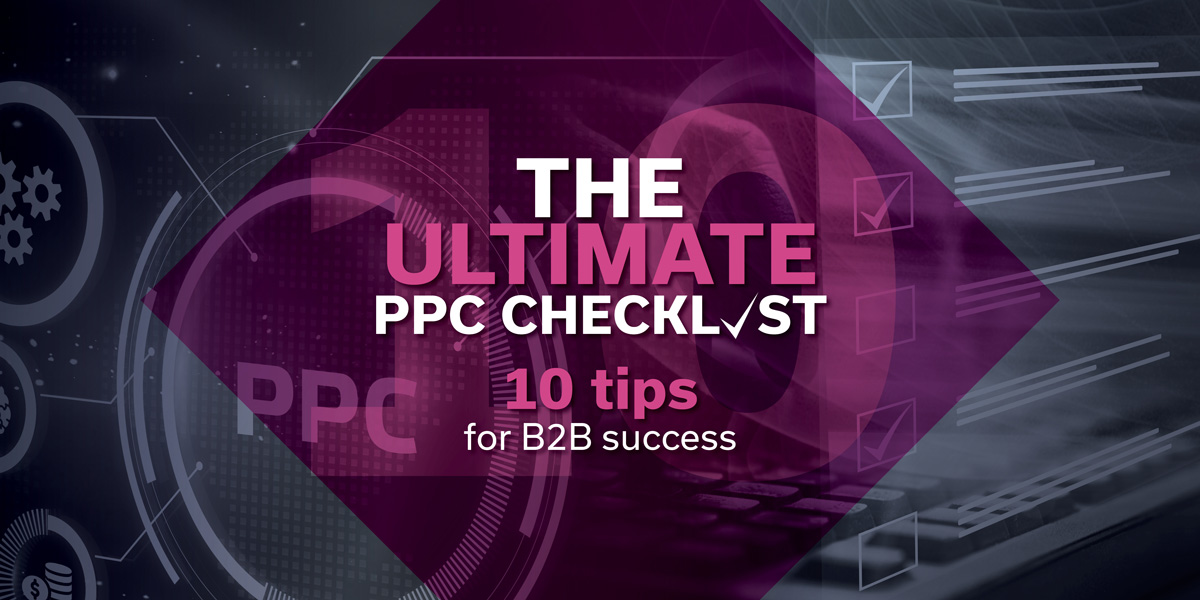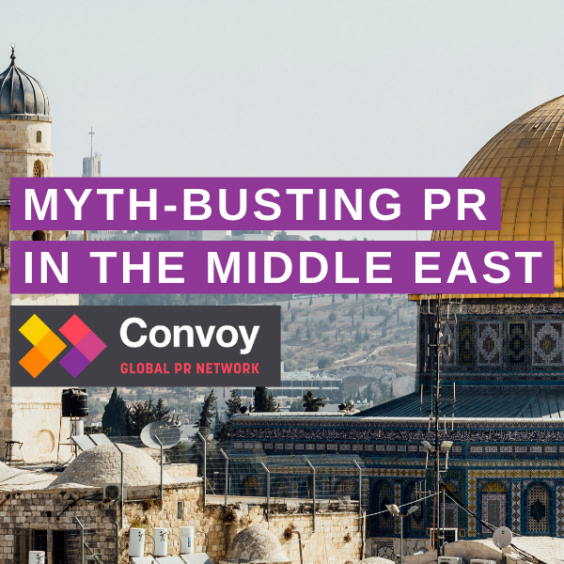Digital advertising can be a tricky game. Whether you’re a pro or just getting started, our 10 expert tips will help guide you in the right direction.
1. Adapt metrics to fit your mission
The way you approach PPC should be entirely dependent on your end goal. And different goals require different metrics.
Are you looking to boost brand awareness? Then turn your attention to click-through rates (CTR), time on page, and impressions to gauge whether you’re getting eyeballs on your brand. Maybe you’re keen to generate leads. If that’s the case, consider measuring conversion volumes, bounce rate, and cost per acquisition (CPA) to assess whether your ads are having a positive or negative impact.
The more you understand the intentions of your PPC campaign, the more focused your strategy will be.
2. Wave goodbye to bias
Let’s face it, marketers are an opinionated bunch. But PPC is one area where relying on biases and gut instinct can yield you astray. By sticking to the status quo, you won’t be able to offer the fresh, gripping perspective that users need to get drawn into clicking on your ad. In my experience, it’s the stuff you least expect that makes the biggest impact.
Don’t be afraid to let go of your preconceptions and start experimenting with out-of-the-box ideas. And above all, always be led by the data – it doesn’t lie!
3. Don’t be naïve
When launching a PPC campaign, it’s easy to think your target leads will come flying through the door in flocks. The reality? Unlikely.
A PPC campaign isn’t a one-and-done operation that obtains immediate results. It’s an ongoing process that demands time to research, analyse, innovate, and let the campaign run its course. All too often, people have one tough month and pull out of a campaign early or rush to revisit their strategy – this is simply far too soon. Patience is imperative, especially in b2b PPC, where the products and services cost more, the sales cycle is longer, and decisions are made by multiple people.
It’s crucial to remain realistic about the outcomes and remember that a single PPC campaign can’t achieve everything you want it to, at least not straight away. While there’s no good throwing good money after bad money, doing PPC right means being prepared for a long-term commitment, and adapting and evolving along the way.
4. Set yourself up for success
PPC conversion troubles got you down? There are a few factors that could be affecting this. Maybe it’s your keyword selection, the ad you’re pushing, or possibly the landing page. But there’s no need for this to be a guessing game. Taking the time to set up a robust conversion tracking infrastructure will allow you to dive straight into the data and identify potential issues in the conversion pathway.
There are various metrics within the Google Ads platform at your disposal. You can use them to track your progress and find out where your attention is needed, whether it’s more focused keywords or stronger ad copy. When it comes to the landing page experience, heat mapping applications (such as Hotjar) can show you if users are hot on the headings or if CTAs are going cold. By making use of the tools around you, you can refine your tactics and stack the deck in your favour.
It’s also important to plan your ads across the entire sales funnel. Buyers move from awareness to consideration and then to a decision phase to purchase your product or service. It’s important to think about a paid infrastructure that takes them on that journey. Businesses tend to focus solely on sales, but in today’s market with diverse product demands, building your brand is just as crucial.
5. Channel your humanity (AKA don’t be boring)
It’s important to remember that you’re marketing to people, not machines. Yes, even in the b2b world!
Good PPC ad copy reflects your audience’s pain points and aspirations. Robust audience segmentation can be useful here, as it enables you to craft messaging closely targeted to each persona.
As well as the content of your ads (i.e. what you’re presenting), remember that you can play with how you’re presenting information. You can experiment with tone of voice, incorporate emoji combinations, and even try your hand at humour. If injecting some spice into your campaign is what it takes to turn heads, my question is: why not?
6. Test, test, and test some more (but consistently)
A/B testing is your new best friend. This approach involves comparing two different versions of an ad to determine which one performs better, allowing for controlled comparisons and stripping away any potential bias. To test effectively, you should be playing with different ad formats, messaging, and images to understand what resonates with your audience.
But I’d be remiss if I didn’t stress the importance of maintaining consistency within one campaign. Test one thing at a time – imagery, ad copy or a different landing page for example. If you pile on too many variables, the data will become impossible to decipher, making it impossible to tell what’s moving the needle.
7. Nail down your demographics
While it may appear obvious, it’s important to ensure you’re reaching the right people. There are several routes you can take – one could be to in-platform targeting.
Let’s say you’re working in b2b finance. In this case, you’ll likely be targeting treasurers, CFOs, and SME business owners. LinkedIn information can be a great way to build an idea of your target audience. It’s important to note that weeding out disengaged audiences is an essential part of in-platform targeting to keep the algorithm focused and on track.
Alternatively, you could leverage account-based marketing (ABM). Knowing your demographic goes beyond who they are, it’s also to do with how you interact with them. An ABM approach involves tailoring your ads to resonate with specific decision-makers, considering factors like job title when crafting messaging and creatives. In this, you can take advantage of personalised messaging to tug on the strings of unique accounts. As mentioned earlier, try things your audience hasn’t come across yet to rake in better results.
At the end of the day, it’s all about trial and error. Embrace the unknown, refine your approach, and let the data guide your next move.
8. Don’t fall for vanity metrics
What are vanity metrics? They’re the quantifiable outcomes of a campaign that look like they offer value, but don’t offer anything in reality — the main offender being impressions.
Impressions only tell you how many feeds your ads have appeared in, but where’s the value if there’s no engagement? Even then, CTR will tell you that your ads are successfully engaging users. This means your ads are doing something right, but there’s no indication that users are following through with the desired actions. That’s where metrics like cost per action come in.

This killer metric not only highlights cost efficiency, but also pinpoints the most effective strategies for maximising ROI. By prioritising the right PPC measurements, you can differentiate the popular ads from the ones that drive meaningful action.
9. Prepare for failure
As is the case with many things in life, you must be prepared to take some losses before emerging successful. When running a PPC campaign, you should only expect a handful of your ad variations will perform well. There’ll be loss no matter the approach, but loss isn’t always a bad thing. It provides an opportunity for growth, helping you rule out the strategies that aren’t quite landing, and ultimately inform wider comms strategy.
10. Hire PPC gurus
PPC can be incredibly nuanced, and it takes dedicated time, effort, and expertise to get the job done right. While your product or service may be amazing, looking at it objectively from within the company bubble isn’t easy. Even with in-house PPC skills, an external view can provide a fresh perspective to get you more bang for your buck.
If you’re looking for help to craft PPC campaigns that hit the spot, the lorries can help. We’ll work with you to pin down the key audiences to target, craft compelling messaging, and optimise your bids, so you can shine through as colourful players in your industry.



